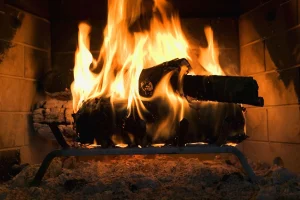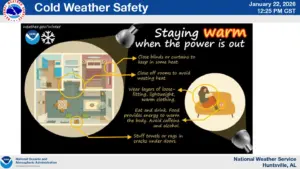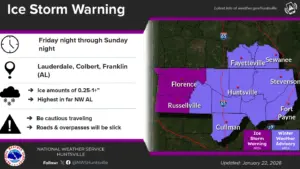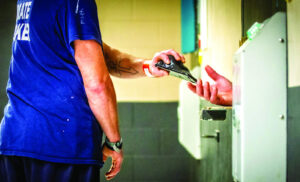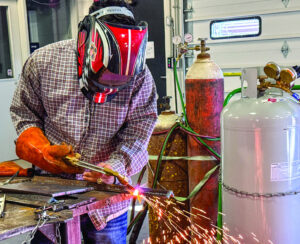His work at Muscle Shoals Sound was a gift
Looking back on his time as a performer, songwriter and producer, Leroy Phillip Mitchell — better known in the music industry as Prince Phillip Mitchell — sees his time in Muscle Shoals as one of several peaks in his career.
“I learned a lot working at Muscle Shoals Sound. That time was a gift,” Mitchell said.
Mitchell had been signed as a studio writer for Muscle Shoals Sound in April of 1970, a year after the Swampers — formerly known as the Muscle Shoals Rhythm Section, consisting of Barry Beckett, Jimmy Johnson, David Hood and Roger Hawkins — had quit FAME Studios to form their own company in Sheffield.
That experience for Mitchell was his second stint in the Shoals music scene. He had spent a few years almost a decade earlier working and recording at FAME under studio owner and engineer Rick Hall.
Before he began churning out song after song for other artists in Muscle Shoals; however, Mitchell cut his teeth as a young writer and performer back in his hometown of Louisville, Kentucky.
“I’ve been doing this since I was a kid, and I mean a little kid,” Mitchell said. “You know, I was making up little poems and rhyming ever since I was about six or seven years old.”
When asked if he’d discovered his love for writing before he found his voice as a performer, he responds emphatically, “No, not necessarily. I was singing then, too.”
While he hasn’t always considered his talent a family talent, Mitchell looks back on previous interviews he’s done over the span of his career and wants to give more credit to his mother, Dorothy Mitchell.
“People have always asked me whether my abilities or interest came from anyone in my family. Normally, I’d say, ‘No, it’s just me.’ I was the youngest of three boys, and none of my siblings could carry a tune in a bucket,” he admitted with a laugh.
“But recently, I’ve come to realize that’s not entirely true. My mom would sing to me. We would sing together all day around the house. She would sing, sing, sing, and I would sing, sing, sing right along with her.”
Mitchell goes so far to say that he even developed his style from his mother.
Though she only sang around their home, and very occasionally in front of their congregation at church, she encouraged her son when he decided as a teen to pursue his talents in doo-wop and vintage R&B.
At 18, Mitchell left home and embarked on a journey that he said brought him to Muscle Shoals all by chance.
That journey started only about 150 miles from his home. With his sights set on the stage, Mitchell began performing in Indianapolis, Indiana, with a band of friends who called themselves The Cash Registers for their work backing American pop singer Alvin Cash.
Soon after this opportunity to chase his dreams presented itself, Mitchell was drafted for the Vietnam War in 1965. That career hiatus was a brief one, though. As soon as Mitchell was medically discharged, he found his way back to the spotlight as a front man for the band the Moonlighters.
“Now, I’m back in Indianapolis, and I didn’t like this band too well,” Mitchell admitted. “I was looking for something a little different. I heard they were holding auditions at this club called The Pink Poodle in the heart of downtown. People were coming from all over the city to try and get this gig with this guy, Big Tiny Kennedy. He was a big band leader from the 1940s and ‘50s.”
Mitchell earned a spot on the show, which he later found out was a traveling revue with stops throughout the Southeastern United States. Among those stops on the tour was a show scheduled in Muscle Shoals.
Before the revue ever departed on tour, Mitchell said he’d gotten a friend and fellow performer a slot on stage with him as a duet. For most of the tour, he said things went smoothly until the touring group made it to north Alabama, where Mitchell’s friend and singing partner, Bill McWhorter, got into an argument with another performer.
“They fired him while we were there in Muscle Shoals,” Mitchell recalled.
“I didn’t like that. I knew what happened, and I told Tiny, ‘Look, Bill is a long way from home. If you fire him, then I quit,’ and I did. So, here are me and Bill, and as far as I was concerned, we were in the middle of nowhere.”
Walking along the street, deciding on their next move, Mitchell said they came across FAME Recording Studios.
“I had heard of FAME, and that was big on my list of places to go back in the day,” he said. “My buddy wasn’t impressed at all. He was mad and ready to go home, but I said, ‘Bill, let’s see what we can get going on here.’ Well, the secretary told us we couldn’t come in. You know, we were just like two hobos walking in off the street.”
The two left FAME, but while Mitchell’s friend worked out transportation back home, Mitchell hadn’t given up the thought of finding work in the Shoals. After finding a room in Sheffield, he also found work performing at a local hotel. Days after earning a little extra cash to prolong his stay, Mitchell tried his chances at FAME one more time.
“I walked through the door, and there was Jimmy Johnson, Barry Beckett and Roger Hawkins. I didn’t know them then, but they had been to the (Big Tiny Kennedy show) and heard me sing,” Mitchell said. “It felt kind of like fate, you know.”
The players who made up the Rhythm Section got Mitchell an audience with Hall, who signed him on to work at the studio as a singer and songwriter. Mitchell said it felt like the offer of his career at the time, although he’d later find Hall refusing to release Mitchell’s cut on the Dan Penn and Spooner Oldham song “Keep On Talking.”
“He thought I was a pretty good singer, but he told me, ‘Your voice is too smooth and too sweet. You need to get some funk. You need to get some gravel in your throat, man,”’ Mitchell said. “I was a Motown singer. I was a smooth singer, you know. I wasn’t Wilson Pickett.”
Mitchell stuck it out for a couple of years, but when he found he wasn’t furthering his own musical career, he left and ventured west. Recording and working with other studios from Texas to California, Mitchell said the Shoals beckoned him back.
When he first walked through the door at the Muscle Shoals Sound, Mitchell said he experienced a little de-ja-vu. Just as he’d been turned away years earlier from FAME, he was being ushered back out the door at MSS. Still, he stuck around one more time.
“I went back and forth. I used to walk Atlanta Avenue over to Jackson Highway every day. I’d go out there and sit in the parking lot and write songs,” Mitchell said. “For about three or four months I did that, and finally Bobby Womack got me in. The rest is history.”
At MSS, Mitchell recorded his own hits, “Free For All,” and “I’m Gonna Build California All Over the World,” alongside other songs he had cut by other artists. Some of those songs were hits like ‘Hurt So Good,” which was recorded in 1973 by Millie Jackson, and “Starting All Over Again,” which Mitchell first wrote for the R&B duo Sam & Dave but in 1972 was recorded instead by soul singers Mel & Tim.
“I don’t know how many songwriters were actually signed at Muscle Shoals Sound,” Mitchell recalled. “There were songwriters from Florida, California, New York, you know, from all over the place.
“Once I got there and got signed, every few weeks or so they would do demo sessions where everyone would bring their songs to Jimmy and the band, and they’d pick out which songs they wanted to demo. I’d say about 80% of the ones they’d picked were mine.”
Mitchell stuck around Muscle Shoals for another six or seven years, but the experience he earned there laid the groundwork for his own albums — each featuring his own songs in his own voice, including “Make It Good,” “Top of the Line,” and “Loner.”
Mitchell said he feels he owes at least a little credit to the Shoals for helping him forge his musical career beyond stage performance.
“Working with Barry Beckett and those guys, I mean, my God, I grew in leaps and bounds,” he said. “It made me a much better songwriter, and I learned how to orchestrate and how to produce. That experience expanded my horizons, big time.”


